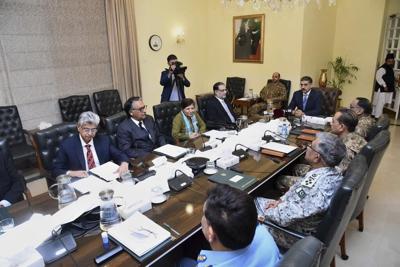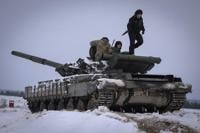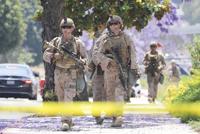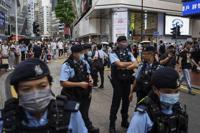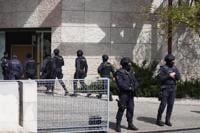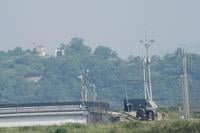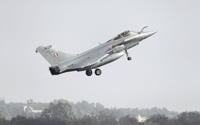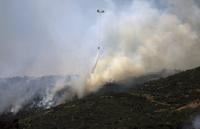ISLAMABAD (AP) — Pakistan's political and military leaders on Friday moved to de-escalate tensions with Iran after this week's deadly airstrikes by Tehran and Islamabad that killed at least 11 people and marked a significant escalation in fraught relations between the neighbors.
The decision was apparently reached at a meeting of Pakistan's ��ɫֱ�� Security Committee, chaired by on his return home after cutting short his trip to the , Switzerland. Pakistan's powerful army chief Gen. Asim Munir attended the meeting.
A statement after the meeting said the leadership discussed the situation following the Iranian airstrikes and praised the “professional, calibrated and proportionate response" by Pakistan's military.
The committee stressed that existing communication channels between Pakistan and Iran “should be used to address each other’s security concerns in the larger interest of regional peace and stability,” according to the statement.
Pakistan on Thursday launched airstrikes against alleged militant hideouts inside Iran, in the Sistan and Baluchestan province, killing at least nine people. The strikes followed Iran’s attack Tuesday on Pakistani soil that killed two children in the southwestern Baluchistan province.
The unprecedented cross-border strikes threatened to imperil ties between Tehran and Islamabad — the two have long regarded each other with suspicion over militant attacks — and also raised the threat of violence spreading across the Middle East, already unsettled by in Gaza.
In Iran, the state-run IRNA news agency reported on Pakistan's efforts to reduce the tensions and said Iranian Foreign Minister Hossein Amirabdollahian spoke to his Pakistani counterpart, Jalil Abbas Jilani.
The two sides want to cooperate moving forward and return each other's ambassadors to Tehran and Islamabad, IRNA said. The diplomatic envoys were pulled home amid the escalation.
Pakistan's military went on high alert on Tuesday, after Iranian airstrikes targeted an alleged hideout of Jaish al-Adl, the Sunni separatist group behind multiple attacks inside Iran.
Pakistan's retaliatory strikes Thursday targeted alleged hideouts in Iran of Pakistani separatist groups called the Baluch Liberation Army and the Baluchistan Liberation Front. Iran said the airstrikes killed three women, four children and two men near the town of Saravan along the Pakistani border.
The dramatic and sudden Pakistan-Iran escalation also came on the heels of Iranian airstrikes late Monday in Iraq and Syria. Those airstrikes were in response to a suicide bombing in Iran by militants from the Islamic State group in early January .
Though Iran and nuclear-armed Pakistan have long regarded each other with suspicion over militant attacks, they had not launched such strikes in the past.
Pakistan’s Baluchistan province, as well as Iran’s neighboring Sistan and Baluchestan province, have faced a low-level for more than two decades. Separatists in southwestern Pakistan often launch attacks against Pakistani security forces and Chinese interests in the country, frequently sneaking across the border to hide in Iran.
____
Gambrell reported from Jerusalem.

